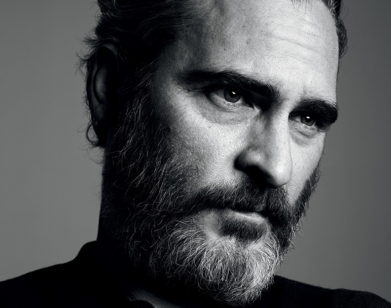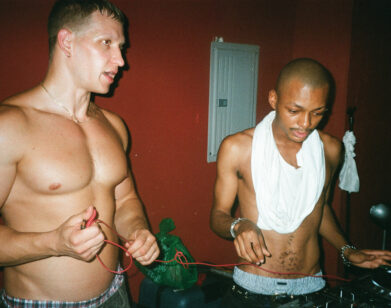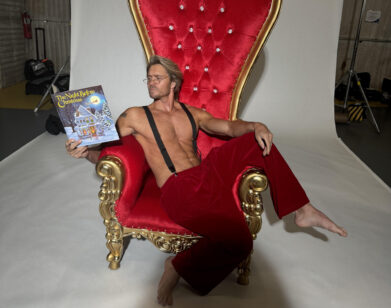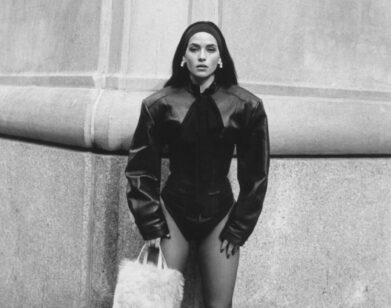Casey Affleck Will Never Be a Minivan Guy Again
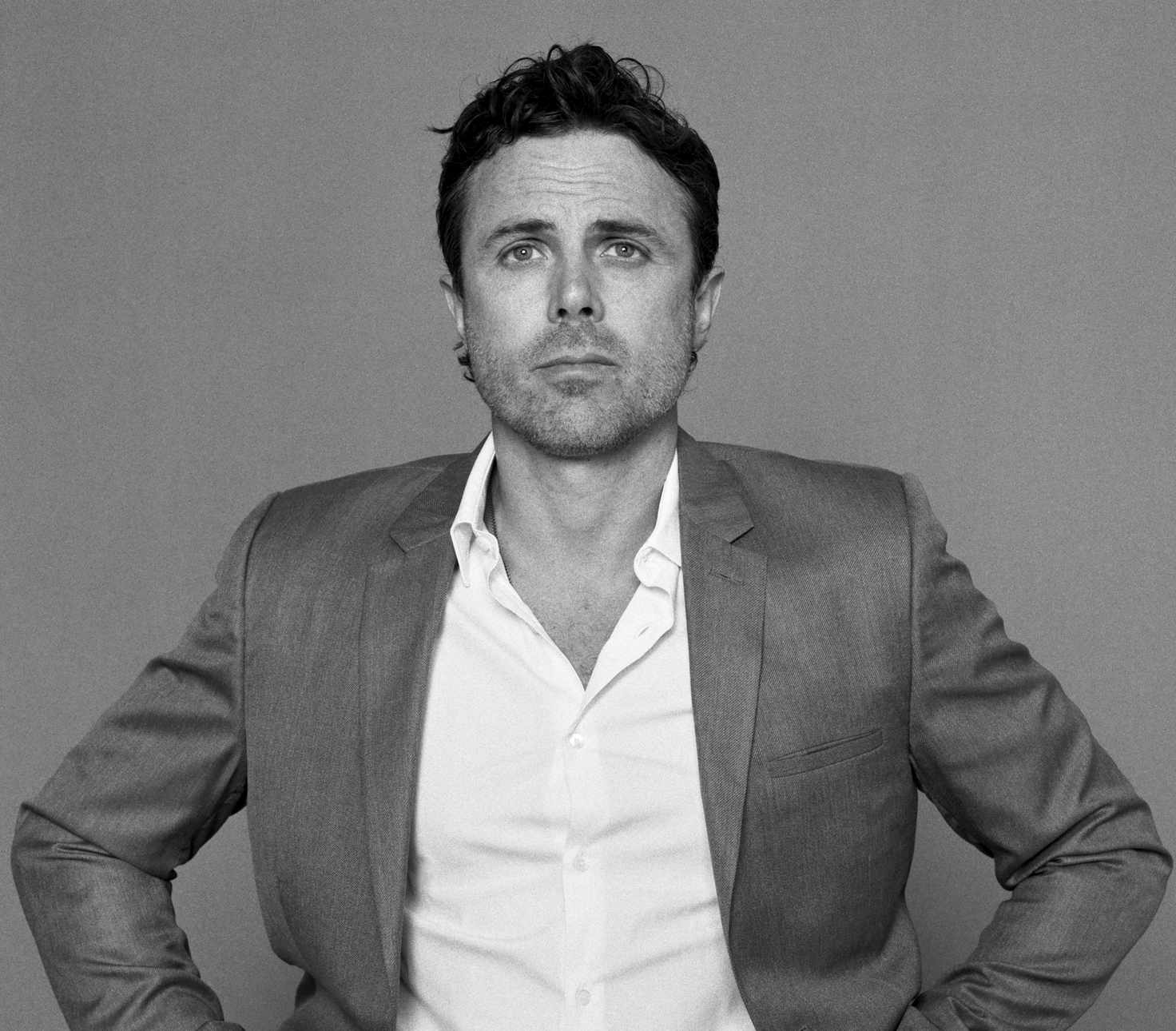
In Dreamin’ Wild (now available for streaming on PVOD), Casey Affleck plays Donnie Emerson, who, along with his brother Joe, were discovered in adulthood when an album they recorded 30 years earlier as teenagers was found at an antiques shop and they were hailed as musical prodigies. The movie features one of the best performances of Affleck’s career. He connected with Donnie before the SAG-Aftra strike to discuss minivans and demons, and the art of the biopic.
CASEY AFFLECK: Did you ever imagine someday a movie would be made about your life?
DONNIE EMERSON: No.
AFFLECK: Was it disappointing to find out I was playing you?
EMERSON: No, I couldn’t imagine anyone else, you were spot on.
AFFLECK: I can’t totally believe that. How did you feel about me coming to your house and sleeping in your front yard in a tent the first night we met?
EMERSON: I was surprised. [Laughs] It was crazy. It was cool. We went into the studio the first night.
AFFLECK: Would it be okay if I came to visit again?
EMERSON: Absolutely, but next time bring Jimmy Glick!
AFFLECK: Jiminy Glick the… Martin Short character? Why?
EMERSON: That’d be fun!
AFFLECK: I have no idea what you are talking about. You want me to bring Martin Short to your house?
EMERSON: Sure.
AFFLECK: He is a genius. He is always so much fun to watch. What a career.
EMERSON: So why did you take this role playing me?
AFFLECK: When you and I met on Zoom, I thought you were interesting. That’s it. Then I had to go on faith that all the other elements around me would come together. But I couldn’t control any of that.
EMERSON: Was it hard for you to imitate my vocal singing and playing?
AFFLECK: I can’t imitate anyone’s singing or playing. Did you think that it was mildly offensive that I could not sing in real life?
EMERSON: No way.
AFFLECK: But you acknowledge I couldn’t?
EMERSON: I didn’t say that!
AFFLECK: What was the most challenging aspect of having a movie made about you?
EMERSON: Fine tuning the writer’s script, to be as authentic as possible to my family’s life story.
AFFLECK: Zooey [Deschanel] and Walton [Goggins] and Beau [Bridges] and Chris [Messina] are better than I am. You seem competitive. Did it bother you that better actors were hired to play everyone but you?
EMERSON: You’re crazy.
AFFLECK: Do you think Avéa and Chance will like the movie even though they were both cast to be blonde and in reality they are brunettes?
EMERSON: Avéa and Chance both loved it, but they said a box of hair dye could have been used.
AFFLECK: Wasn’t in the budget. So, if you could change anything about this movie what would it be?
EMERSON:Showing my mother selling the Dreamin’ Wild LPs door to door with her big bag, which was true, and still is happening today. How did you like the cinematography of the film?
AFFLECK: Arnaud Potier is a great D.P. Recently shot Harmony’s movie and it looks wild.
EMERSON: What would you have liked to see in the film?
AFFLECK: More of you, less of me.
EMERSON: More of my minivan too? Since this film, are you now a minivan man?
AFFLECK: I don’t mind a minivan. I’m a dad. I can roll that way. I can drive a minivan around, windows down, music up, with my head held high. In fact, I have. But not in a while. It’s funny though: I drove your car. I wore your actual clothes. I acted with your real parents. But then I left it all for you. Minivan included. I had to give it all back. And you have a nice life. You have a great family—the sweetest most beautiful kids—and a warm home, and you spend your time doing what you love. You really have a great life. I loved being you.
EMERSON: Was any part of it hard?
AFFLECK: The hardest part about being you was trying to sit in that self-flagellation you do. It wasn’t hard because I couldn’t understand or relate. I can. I really can. But I’m trying not to do that in my own life. And you, at the time of this movie, were really beating yourself up and getting in your own way. It was uncomfortable to do that in every scene, and because the film doesn’t have much conflict, it meant all the drama had to come from that internal dialogue with your demons. What I wanted for you during the movie was peace. I wanted your “character” and you as a real person to exhale, to surrender, to be happy, to enjoy the full and beautiful life you have. And play some music. But making the movie stirred it all back up for you and made your life stressful for a while. And that was disappointing. But perhaps in the end, this will be cathartic for you. I hope so. You are a great guy. Your past is behind you and you have a lot ahead of you. I’m excited to see it. I came to love you, man. Really. You have a huge heart and you try to do right by people. I will always be rooting for you. That’s all. But I don’t think I will ever be a minivan guy again.
EMERSON: Thank you, Casey. I think I have told you how we all feel about you.
AFFLECK: You, have brother. You don’t need to do that here.
EMERSON: Okay.
AFFLECK: So, you been playing music?
EMERSON: I have been. Is the song that Nancy and I wrote for the film “When A Dream Is Beautiful” your new jam?
AFFLECK: Haven’t heard it. I am sure Nancy carries you through it. How did you find and keep Nancy despite her being way out of your league?
EMERSON: Got her and kept her, with my music, my cooking, and by promising her that you were going to be playing me as her husband in a film one day!! Hey listen, how would you feel about going on a music tour with us to perform my song “Baby,” or are you sick of the tune now?
AFFLECK: Autotune me and I’m in. But listen, buddy, this will be the only interview we do or publicity event we do together because I think my union Screen Actors Guild is going to strike. If that happens, I will support the union and not publicize any film. The silver lining is that the spotlight— however dim and flickering—will be on you and your family, where it belongs.
…

